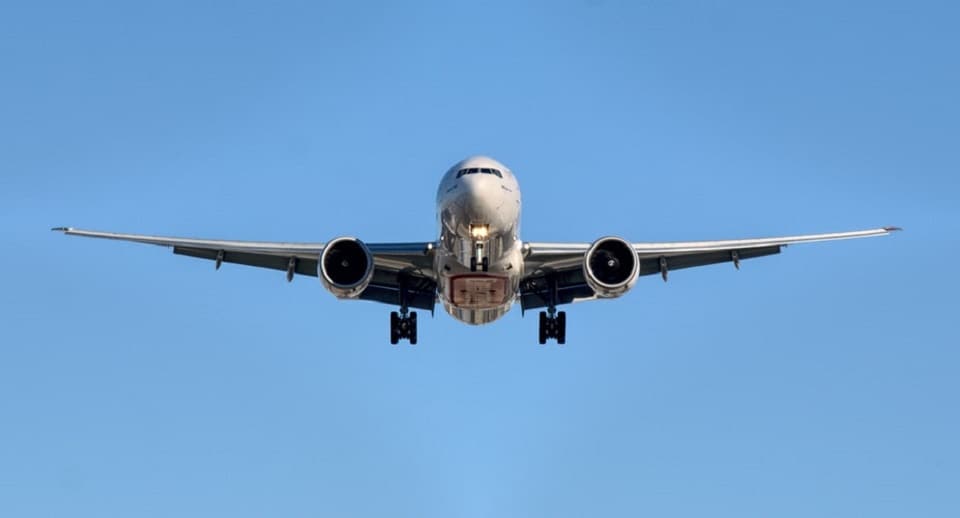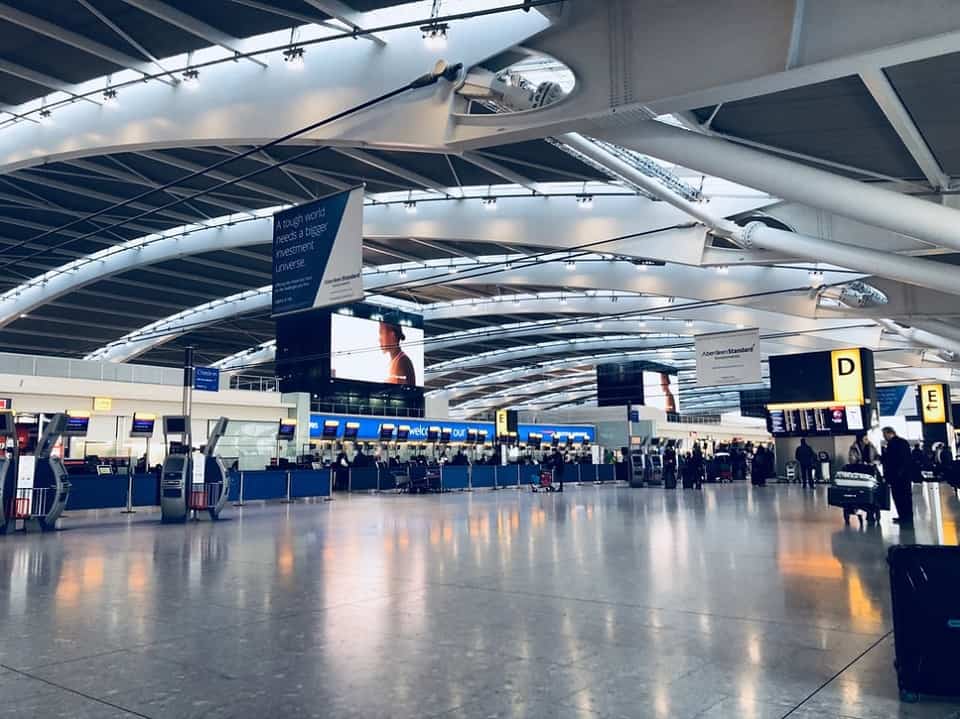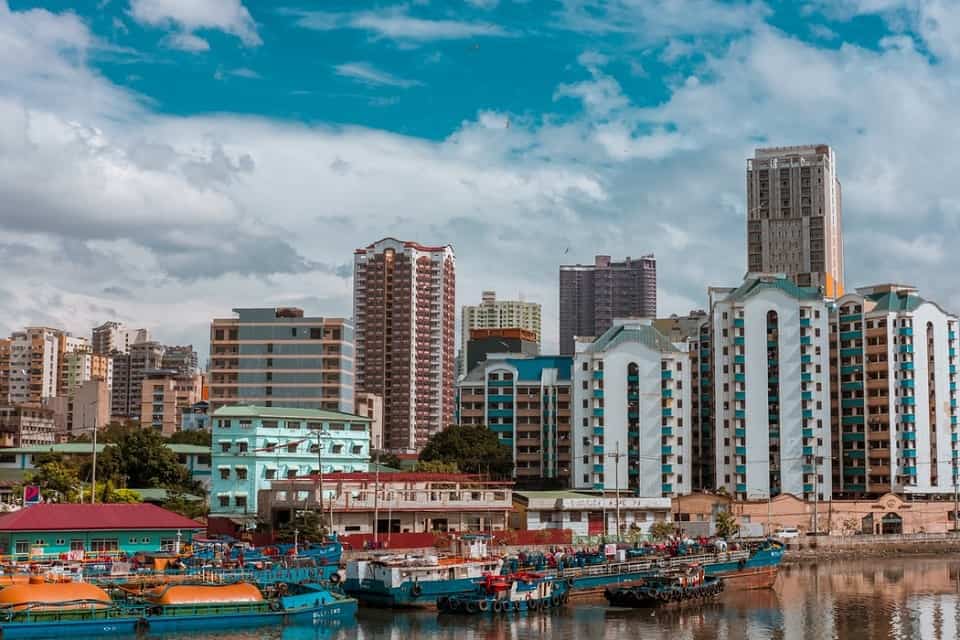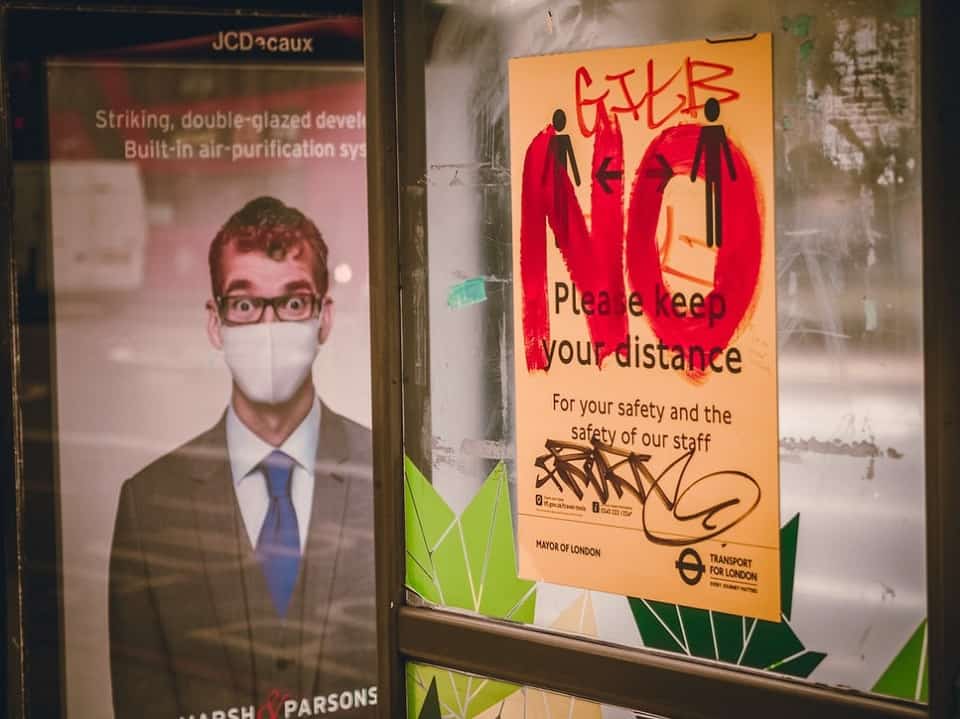2020 has been a disastrous year. It would be hard for anyone to disagree with this. The world has not only had to deal with the coronavirus but also the incredible levels of restrictions placed on both travel and industry in general. This has brought most digital nomads to a standstill and we’re still trapped in Manila, nearly 7 months after we arrived for 2 weeks. Now everyone needs to know – is the digital nomad a thing of the past?
Is the digital nomad a thing of the past? That’s the question that we’ve been asking recently, and we are increasingly worried that the answer is “yes”. Had this been 2 weeks to flatten the curve as originally implied then life might have returned to normal but as we reach 2021 with no end in sight, our crystal ball has turned cloudy and we are seriously contemplating the permanent death of the digital nomad lifestyle.
Table of Contents
The Future Of Digital Nomadism

We will, as always, abstain from any debate on the rights and wrongs of the coronavirus and its handling by any government or institution. This is not because we don’t think that’s a discussion worth having but because it doesn’t belong here – instead, we are going to look at two things in our analysis.
The first is the world of remote work and work in general. What are the implications of mass economic devastation on the prospects for workers whether digital nomads or not? Are there encouraging signs that “knowledge workers” might escape the bonfire of our economies or not?
The second is to look at travel and ask some very hard questions about the future of travel and we want to touch on this in both general terms and in terms of digital nomads themselves. We know that some will argue that the emergence of “digital nomad visas” is a bright spot, we think that this is, in reality, a sign of just how desperate things have become and we’ll explain why.
All Doom And Gloom For Digital Nomads?

I will strive, as I always have, to present a balanced view of things but I confess, that as we approach Christmas of 2020, I find very little to offer cheer to those that are ready to throw themselves into a digital nomad lifestyle in 2021 or, perhaps, even for the next decade or more.
That doesn’t mean that there aren’t some bright spots and even potential for us to shape our futures as travelers and workers but this must be tempered with a hard dose of realism as 2020 draws to a close and no-one should be considering packing in their job to strike out on their without a very, very good plan and financial safety net in place.
Let’s Talk About Remote Work

I know that some digital nomads believe that one thing that has emerged from this crisis is that remote work has become a vital aspect of the economy as millions were asked to work from home. They contend that there will be an endless supply of remote jobs in the future as employers have now learned how awesome it is to have a distributed workforce.
We think they are entirely too confident about their own value. As Brookings’ Sawhill told Axios, “If a job can be done remotely by a worker in the U.S., it can also be done remotely by, says, a worker in India or China.”
Two months later Bloomberg was reporting that the Philippines was seeing a surge in companies moving jobs overseas to take advantage of lower wage costs.
Just How Many Remote Work Jobs Are We Talking About?

A report, from the week of this article’s publication, in Brink (the risk management strategy website) shows that 20-40% of all remote work could easily be done overseas. And that’s the first wave of outsourcing “the easy” stuff, when businesses start to see the cost-savings and lack of loss in productivity, this will accelerate.
So, while we absolutely do not dispute that more jobs will be done remotely, we wonder just how many of them will be done by the Western workforce that has traditionally done these jobs?
It’s already been noted by the Lubbock Avalanche-Journal that even businesses that have done well under the current circumstances have been quietly laying off Western workers to replace them with offshore workers.
“Even as it crowed about record quarterly sales, Salesforce handed out pink-slip notices to 1,000 of its employees.”
The journal lists dozens of the biggest companies in the world which have laid off, replaced, offshored, and outsourced tens of thousands of jobs during the crisis. Those jobs are not coming back.
The State Of Business As A Whole

If that wasn’t worrying enough – what most people in the West don’t seem to have realized is how badly their economies have been damaged.
Their governments have printed money to “aid” people in their time of need and thus, those people don’t seem to understand the consequences of what has happened to the companies that they work for.
In the UK, The Guardian reports that two-thirds of all businesses are at the door of bankruptcy, according to Bloomberg 6,000 New York businesses have already closed (40% more year-on-year) and that’s not even close to what will happen after the Winter which is going to destroy much of what is left.
These tales of catastrophe are not limited to these locations, everywhere around the world, lockdowns mean the destruction of the backbone of our economies. It is not government or civil service that keeps us fed and it is certainly not the mega-corporations which may wield disproportionate amounts of power but in reality, only account for 5% of the economy.
SMEs Are Our Economies

It is the SME (small-medium sized enterprise) that is the cornerstone of our economy. It provides roughly 95% of all private-sector jobs and roughly the same amount of value to the economy. Without it, you have to wonder where the jobs will come from.
And you cannot shrug your shoulders as a digital nomad in the face of such devastation. Even if the industry you are in is not directly impacted, once the economic slowdown hits, the fallout will be catastrophic.
From every indication, the economic outlook of 2021 is worse than that of the Great Depression and this time around – it’s going to be global.
That means if you have a job, you’re going to be terrified that it might disappear this year or next year. If you don’t have a job, then you’re going to be terrified that you may never find a job – we don’t see either of these situations as conducive to becoming a digital nomad in 2021 and traveling the world without a care, do you?
Time To Strike Out On Your Own As A Digital Nomad In 2021?

The one area of, perhaps, relative brightness in all of this is for those in a position to become entrepreneurial, and in this case, we do not mean freelance work. For freelancers, we think 2021 is going to be far worse than for the readily employed.
Freelancers are facing a market that will be saturated with skilled people who have been laid off and are now willing to work for food. Those without long-term established clients and good relationships with those clients may want to seriously consider going home to wait this storm out – at least in your own country, you may be able to access any social security safety net available to citizens, there will be no such kindness awaiting us out in the rest of the world.
There is a fair amount of common knowledge that says, the best time to start a business is in a recession. This is because you can normally leverage any money that you have to go farther, people will accept lower wages for work, suppliers may extend better than normal terms, etc. The folks at Investopedia even have a neat guide to this.
Digital Nomads Need To Know Their Recession From Their Depression

But a recession is not a depression. In economic depressions, things like inflation spiral out of control and that means spending more on producing goods and services than you get paid for them. Sure, you may be able to dominate a market but what use is that if the market is not profitable?
As The Balance explains, at the same time, the economy contracts rapidly, during the Great Depression (and the last depression of “recent memory”) in some years the economy would shrink by 10% a year! Global trade dropped by 66% over 5 years! And even after you adjust for deflation (the process by which falls in consumer demand are accounted for) the net output of the US economy dropped from $1.1 trillion in 1929 to just over $800 billion in 1933, a loss of nearly 25% of their economy!
If opening a business in a recession is an act of bravery, then opening one in a depression may be foolhardy in the extreme. And don’t think that your savings will mitigate against this, if hyperinflation arrives, any money you have in the bank will be confetti by the time the depression ends.
Is The Digital Nomad A Thing Of The Past? Hyperinflation Looms
The Wall Street Journal and many other credible sources were predicting hyperinflation as early as April of 2020 when the reckoning for this episode in history comes due.
We think it says something when even an article spam merchant like Smallbusiness.chron can only find 3 “good businesses to start for the depression” and they are repossession, funeral homes and insurers. Not exactly inspiring or hopeful stuff is it?
We also note that none of these jobs seem particularly suited to being a digital nomad. It’s hard to bury someone by e-mail even if the cancel culture mobs wish that they could.
That’s not to say that opportunities will not arise in a depression, they almost certainly will but without a crystal ball (and better advice than that shared by our last link) we’d put your chances of succeeding (which are always poor for new businesses) at very, very unlikely, indeed. And yes, this was the “bright spot” of our economic outlook for digital nomads in 2021.
The End Of Travel

People keep talking about travel “springing back” once lockdowns are lifted. We wonder whether they are sharing the same planet as we are.
There has been no industry on earth as hard hit as tourism and travel. National borders have been shut for months. Airlines have laid off tens of thousands of staff around the world, 50,000 in the United States alone, and many have had to reduce their fleet capacity to have any prospect of survival.
These things won’t “spring back”. The knock-on effects of workers with no jobs means that they no longer have the training to carry out their jobs – safety training often expires quickly and many will have left the industry for good, they’ll have found other work and nobody’s going to quit when the economic outlook is bleak.
Not Just Workers But The Travel Businesses Too

And speaking of bleak outlooks, it’s not just the workers, 40 airlines have gone bust and they’re not coming back at all. And there are 193 European airports at risk, that’s 20% of all the airports on that continent.
The airlines that fall and the airports that go with them are most likely to be budget airlines and airports that serve budget airlines. In short, this means that flights are going to be much, much more expensive than they were.
We know there are fantasies about the travel industry offering cheap flights after this but it can’t happen except, perhaps, for a very limited period of time to get people flying again but eventually, somebody has to pay for this and those “somebodies” are digital nomads.
Then You’ve Got Quarantine To Deal With

If this wasn’t enough there are other problems with traveling the world now. Mandatory quarantine. Many countries are insisting that all travelers “self-isolate” or place themselves into 14-day (or longer) quarantine facilities. Sometimes, these are reasonably priced, and sometimes, they are not.
They all involve, however, a significant loss of liberty. A digital nomad who finds that their hotel’s internet has failed for the day could pop out to the local café or co-working space to recover their lost productivity.
Now? They will be at the mercy of the repair company and anyone who has lived in a developing nation will explain that can be a very long time coming and even in developed countries it can be too.
Digital Nomad Disaster Zone

The last thing people in a horrific economy need is the risk of souring an employment or client relationship – it could mean the difference between life and death particularly when you’re on the other side of the world far from a safety net.
Then there are the constantly changing procedures around lockdowns and national approaches to virus management. Who knows when a country will round up all foreigners and force them to take a barely tested vaccine? We don’t and there have been plenty of murmurs indicating this as a possibility.
The Biggest Question: Why Would Anyone Want To Travel Now?

You also have another big question. Why would you want to travel? To arrive in a country where shops are closed, bars are closed, gyms are closed, everyone is wearing masks and socially distancing, the tourism sites are closed down? Travel doesn’t broaden the mind when you can’t access the local culture or sights.
We’ve been trapped in Manila, a city that I used to love, after 8 months of being forced into a tiny apartment and not even being able to get out for fresh air – I’d rather be anywhere else on earth. Why would you choose this?
You can’t go for a walk in a park without being told you cannot sit down, you can’t remove your mask and your face shield and you must move at a uniform pace to avoid breathing near anyone else. You can’t visit a museum, they’re all closed.
They announced that the beaches were open here, with mandatory masks. Fancy a swim with a piece of cloth over your mouth? The CIA calls that waterboarding. They do it to terrorists but now apparently, it’s OK for tourists too.
Why Not Stay At Home?

Again, why would anyone choose this? There’s enough bullshit at home to deal with, why join another country’s where you have no voice and no legal comeback?
Then let’s throw in visa insecurity. Many countries threatened to expel all foreigners during the opening rounds of this crisis. What’s to stop them from doing it in the future with no notice? What if there are no other countries open and you are forced into an immigration holding cell to wait for a flight home? Possibly a flight you can no longer afford.
Flights from Manila to London, for example, went from around £300 one-way to over £2,000 thanks to lockdowns. Many nomads are nomads to save money – those savings are evaporating.
We’re Not Done, Yet

Then we turn to hotels, guesthouses, and Airbnbs. They too have just lost the best part of a year’s income. Their creditors, staff, etc. have all needed to be paid. Guess who will be paying for these things when or if the world opens up again? That’s right, you will.
Sadly, many more have already gone into bankruptcy. So, there will be much less supply in the market too – a situation which leads to higher prices.
Remote Year Abandoned Its Customers

If you’re thinking that maybe you will turn to a premium service such as RemoteYear (which we were pretty scathing about before lockdowns) then you might want to read up on this company which went into panic mode and dumped people all over the world with no accommodation and no way to get home when things kicked off.
They’re under new ownership now but seriously, why would you pay a premium to risk being dumped in a crisis again? Remote Year is not fit for purpose, not that it ever really was.
Coworking Is In Its Death Throes

We can also look at co-working spaces and their collapse in the coronavirus days. Who wants to pay for an office that is substantially worse than home? Mandatory masks and social distancing. No food, no drinks because of contamination risks? And no talking either. You might as well stay at home at least there you can turn on the TV. And, unsurprisingly, that’s what people are doing and coworking is shuttering all over the place.
So, the main source of connection that most nomads use on their travel is gone. And so are many pubs, bars, and restaurants that might, once, have served as alternative venues.
What About Nomad Visas?

Some places, like Barbados and the UAE have been quick to offer “digital nomad visas” as an incentive to get people to come and stay for a long time and spend money. Some claim this is a positive sign. We disagree.
The cost of living in Barbados is high, in fact it costs more than the United States, and certainly higher than most traveling nomads (who tend to hang out in SE Asia, South and Central America and Eastern Europe because they are cheap to live in) are going to want to spend or even be able to spend.
The UAE visa requires you have a minimum of $60,000 to spend each year, that’s a lot more than many nomads and even those who do make more than this may find it hard to prove it.
Desperate Times: Is The Digital Nomad A Thing Of The Past?
And don’t forget, these countries did not want to know you a few months ago. They’re letting you in because they’re desperate. There are no tourists and no money flowing in these places.
Do you know what happens to the crime rate when nobody’s spending any money? Yup, and guess which foreigners, who will now stand out like a sore thumb, are likely to become a target for that?
In short, there are more problems than payoffs ahead on this road, and again, who knows when they will just elect to cancel your visa and throw you out? Thai Elite Visa holders paid tens of thousands of dollars for long-term visas and yet, the Thai government had no qualms about refusing them entry to the country this only changed on October 1st.
Many, if not most, digital nomads cannot afford to gamble their futures on uncertainty, expensive visas, etc.
Finally, there’s also a risk that you become a tax resident in these places and they stop you on the way out and demand that you pay taxes. Think about that.
Conclusion

So, the economy is dying, and travel is dead. We can’t think of a single worse year to start being a digital nomad than 2021. The only time we’d advise you to start in 2021 is if you have a ton of money in savings and you’ve diversified those savings into multiple currencies – as hyperinflation could render them worthless in an instant otherwise or if you have a permanent job with a high income that is guaranteed for the next year or more.
It saddens me to say it, but for now the answer to “is the digital nomad a thing of the past?” must be yes. We won’t give up. I’m not going home. We will remain optimistic and report on any major events that give us hope but we’d strongly advise you to think long and hard about embarking on this life in 2021.
As for Nomad Talk, for now, we will be refocusing on just the remote work and remote writing aspects of life. Freelancers and workers are going to need to be able to earn and to prepare for better days in the years to come.
